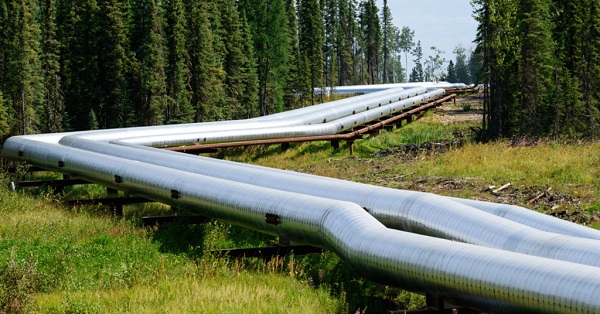Opinion
Women’s sports are under siege by male participants, and no one seems to be stopping it

From LifeSiteNews
Sporting authorities continue to punish those who notice anything unfair while supporting the complete takeover of female leagues.
The entry of trans-identified males into female sports has led to some truly surreal scenes.
This past weekend, for example, the Miniseries of the Ultimate Pool Group was held in the U.K. As Reduxx reported: “On the women’s side, 64 entrants entered the competition, including two trans-identified males – Harriet Haynes, formerly Chris, and Lucy Smith. By the time of the semi-finals, Haynes and Smith ended up playing off against each other, meaning that there was an all male semi-final in a women’s sport.”
It isn’t just happening in pool, either. The Flying Bats FC, a soccer team based in Sydney, Australia, broke headlines around the world earlier this year after it was discovered that five of the women’s players…were actually trans-identifying males. Complaints were made by both club officials and parents, to no avail.
In August, the Daily Mail reported that “the team have capped off an undefeated season in the Women’s Premier League competition which they have won all 16 of their regular season matches while scoring 65 goals and conceding just four in the process by winning the grand final.”
Six of the victories “won” by the Flying Bats were due to other teams simply forfeiting games, including the two semi-final games, despite the fact that the sport’s governing bodies warned soccer clubs that they would be “punished if they forfeited their games against the Bats” over the trans-identifying players. In response to backlash, club president Jennifer Peden told the press:
As a club, the Flying Bats FC stand strongly for inclusion, and pride ourselves on safe, respectful and fair play, the promotion of a supportive community for LGBTQIA+ players, officials and supporters, and the significant physical, social and mental health benefits that participation in sport brings, especially to marginalised members of the LGBTQIA+ community. We are a club that values our cisgender and transgender players equally. We strongly support the Australian Human Rights Commission’s guidelines for the inclusion of transgender and gender diverse people in sport.
This despite the fact that the Flying Bats have been accused of injuring some female players. There isn’t much recourse for the female players who have seen their sport invaded by men; in the recent ruling Tickle v. Giggle, an Australian court announced that “sex is not confined to being a biological concept.” “Roxanne Tickle,” a man who identifies as a woman, had sued the “Giggle for Girls” app and founder Sall Grover over their female-only membership policy. The Federal Court of Australia ruled that Tickle was unlawfully discriminated against.
There are few women’s leagues not currently under siege by trans activists. A trans-identified man competed in a female Paralympics event. A man competed in the Canadian Powerlifting Union (although he was suspended for a while after threatening women who voiced disagreement with his participation). In Washington in July, teams with trans-identified males won all three of the top spots in a women’s bike race. Another male nabbed first prize in a female bicycle tournament – two years in a row. Female rugby players from Alberta, Canada, expressed fear when a male was permitted to join their team.
The Ultimate Pool Group competition, at least, turned out well. Harriet Haynes, the trans-identified male, ended up heading into the finals and playing against Welsh woman Kirsty-Lee Davies. At first, Haynes was winning, leading five frames to two. He only needed one more to win when what was described as a “phenomenal” comeback, Davies won four frames in a row and won the match.
The man lost; the woman won. Of course, she shouldn’t have had to play him in the first place, and who knows how the competition would have unfolded if men had not been permitted to play. But still, a victory.
Business
The EU Insists Its X Fine Isn’t About Censorship. Here’s Why It Is.

Europe calls it transparency, but it looks a lot like teaching the internet who’s allowed to speak.
|
When the European Commission fined X €120 million on December 5, officials could not have been clearer. This, they said, was not about censorship. It was just about “transparency.”
They repeat it so often you start to wonder why.
The fine marks the first major enforcement of the Digital Services Act, Europe’s new censorship-driven internet rulebook.
It was sold as a consumer protection measure, designed to make online platforms safer and more accountable, and included a whole list of censorship requirements, fining platforms that don’t comply.
The Commission charged X with three violations: the paid blue checkmark system, the lack of advertising data, and restricted data access for researchers.
None of these touches direct content censorship. But all of them shape visibility, credibility, and surveillance, just in more polite language.
Musk’s decision to turn blue checks into a subscription feature ended the old system where establishment figures, journalists, politicians, and legacy celebrities got verification.
The EU called Musk’s decision “deceptive design.” The old version, apparently, was honesty itself. Before, a blue badge meant you were important. After, it meant you paid. Brussels prefers the former, where approved institutions get algorithmic priority, and the rest of the population stays in the queue.
The new system threatened that hierarchy. Now, anyone could buy verification, diluting the aura of authority once reserved for anointed voices.
Reclaim The Net is sustained by its readers.
Your support fuels the fight for privacy, free speech and digital civil liberties while giving you access to exclusive content, practical how to guides, premium features and deeper dives into freedom-focused tech.
Become a supporter here.
However, that’s not the full story. Under the old Twitter system, verification was sold as a public service, but in reality it worked more like a back-room favor and a status purchase.
The main application process was shut down in 2010, so unless you were already famous, the only way to get a blue check was to spend enough money on advertising or to be important enough to trigger impersonation problems.
Ad Age reported that advertisers who spent at least fifteen thousand dollars over three months could get verified, and Twitter sales reps told clients the same thing. That meant verification was effectively a perk reserved for major media brands, public figures, and anyone willing to pay. It was a symbol of influence rationed through informal criteria and private deals, creating a hierarchy shaped by cronyism rather than transparency.
Under the new X rules, everyone is on a level playing field.
Government officials and agencies now sport gray badges, symbols of credibility that can’t be purchased. These are the state’s chosen voices, publicly marked as incorruptible. To the EU, that should be a safeguard.
The second and third violations show how “transparency” doubles as a surveillance mechanism. X was fined for limiting access to advertising data and for restricting researchers from scraping platform content. Regulators called that obstruction. Musk called it refusing to feed the censorship machine.
The EU’s preferred researchers aren’t neutral archivists. Many have been documented coordinating with governments, NGOs, and “fact-checking” networks that flagged political content for takedown during previous election cycles.
They call it “fighting disinformation.” Critics call it outsourcing censorship pressure to academics.
Under the DSA, these same groups now have the legal right to demand data from platforms like X to study “systemic risks,” a phrase broad enough to include whatever speech bureaucrats find undesirable this month.
The result is a permanent state of observation where every algorithmic change, viral post, or trending topic becomes a potential regulatory case.
The advertising issue completes the loop. Brussels says it wants ad libraries to be fully searchable so users can see who’s paying for what. It gives regulators and activists a live feed of messaging, ready for pressure campaigns.
The DSA doesn’t delete ads; it just makes it easier for someone else to demand they be deleted.
That’s how this form of censorship works: not through bans, but through endless exposure to scrutiny until platforms remove the risk voluntarily.
The Commission insists, again and again, that the fine has “nothing to do with content.”
That may be true on a direct level, but the rules shape content all the same. When governments decide who counts as authentic, who qualifies as a researcher, and how visibility gets distributed, speech control doesn’t need to be explicit. It’s baked into the system.
Brussels calls it user protection. Musk calls it punishment for disobedience. This particular DSA fine isn’t about what you can say, it’s about who’s allowed to be heard saying it.
TikTok escaped similar scrutiny by promising to comply. X didn’t, and that’s the difference. The EU prefers companies that surrender before the hearing. When they don’t, “transparency” becomes the pretext for a financial hammer.
The €120 million fine is small by tech standards, but symbolically it’s huge.
It tells every platform that “noncompliance” means questioning the structure of speech the EU has already defined as safe.
In the official language of Brussels, this is a regulation. But it’s managed discourse, control through design, moderation through paperwork, censorship through transparency.
And the louder they insist it isn’t, the clearer it becomes that it is.
|
|
|
|
Reclaim The Net Needs Your
With your help, we can do more than hold the line. We can push back. We can expose censorship, highlight surveillance overreach, and amplify the voices of those being silenced.
If you have found value in our work, please consider becoming a supporter.
Your support does more than keep us independent. It also gives you access to exclusive content, deep dive exploration of freedom focused technology, member-only features, and practical how-to posts that help you protect your rights in the real world.
You help us expand our reach, educate more people, and continue this fight.
Please become a supporter today.
Thank you for your support.
|
Bruce Dowbiggin
Wayne Gretzky’s Terrible, Awful Week.. And Soccer/ Football.

Inquiring minds want to know: Why did FIFA (Federation of International Fraud Artists) award American president Donald Trump a new “Peace Prize” at the Washington D.C. draw for the June/ July tournament? The usual suspects are paralyzed with rage. Everyone else is laughing at the kabuki theatre stunt.
The short answer is that if you were FIFA and you were receiving a reported billion or more dollars from the U.S. and the Canadian/ Mexican cities hosting the 48-team tournament you’d give the host more than a bottle of wine and flowers as a thank-you. Thus the ugly statue and the Boy Scout medal. The obsequious awarding of the prize and match medal were proportionate to the greed of FIFA in extorting the cash.
(America’s fainting goat media immediately complained about unearned awards for little virtue, forgetting as usual that the Nobel folks gave Barack Obama a Peace Prize after nine months in the White House for simply being a black man.)
Trump getting a peace award from FIFA, the most corrupt sports body in the sports world, is mint, however. You can’t write this stuff. (They should give it to him on a speed boat heading across the Caribbean.) The Donald then playfully suggested that Americans leave the name football to the soccer folks because, you know… feet and a ball. More outrage from NFL fans.
So what was the gift for the two Canadian cities hosting games who have also coughed up plenty? Toronto says its estimated budget is $380 million for six games/ B.C. tax payers are obliged to cough up an estimated $580 million for Vancouver’s five games). For cities with, how shall we say, bigger fish to fry.
Sadly all they got was a little farce in which a delighted PM Mark Carney was allowed to Canada as the first ball to start the picking, evidently unaware that all the balls he had to select from also said Canada. Carney’s joy was tempered when he saw Mexican president Claudia Sheinbaum draw a ball that said “Mexico” while Trump— in on the fix— got one entitled “United States”.

In a final attempt to curry favour with the fleeced nations FIFA boss Gianni Infantino gathered the world leaders for a painful onstage selfie, marking the first time Trump and Sheinbaum had ever met in the (orangey) flesh. Call it National Lampoon’s Soccer Vacation.
Having exhausted itself with the peace prize falderol FIFA evidently forgot to put any more thought into the rest of the 55-minute run-up to the draw. While soccer/ footie fans around the world ground their teeth in impatience the organizers presented a combination Eurovision/ People’s choice Awards ordeal of failed cues, untranslated interviews (the Spanish translator showed up about 30 minutes late) and pregnant pauses.
Host Heidi Klum’s stunning gold dress nearly made up for her wooden repartee with comedian Kevin Hart (“not sure why I’m here”) and co-host Rio Ferdinand, former star English defender who, alas, never won the WC. But that was all an appetizer for the real low point, the introduction of global brand stars to pick the draw. NFL legend Tom Brady, NBA legend Shaquille O’Neal and NHL… er, player Wayne Gretzky.
Their task, hectored by the hosts, was to draw a ball, unscrew the thing, withdraw a nation’s name and so on. While there may have been some tension in the audience there was no appreciation of that on the screen as more clunking dialogue and curious pronunciations (Ferdinand kept referring to Group “Haitch”) landed dead on the floor.
The nadir of the ceremony—indeed of his career— was Gretzky’s contribution. Brady and O’Neal had managed to survive their task of unscrewing the ball and pronouncing a name, but Gretzky was brought low by the stage business of the balls and the nations he was forced to announce.

The clearly flustered Gretz (he insisted he’d practiced all morning) wrestled manfully with the balls. Finally the producers went with a long shot of him fumbling in the dark. Then he topped that. Gretzy apparently thinks there are countries called “North Mack-a-donia” and “Cur-ack-ow.” Other stabs at geography were almost as tortured.
Bitter Canadians could put up with him sucking up to Trump (he was mentioned as being in the crowd at the DC Xmas tree lighting) but failing geography is unforgivable. The week that started with Gretzky in a photo golfing at POTUS’s Jupiter, Florida, golf course was ending with him pummelled for his abuse of nations with different-sounding names. The Wayne Gretzky Center For Kids Who Want To Talk Good.
The moral: Never send a centre to do a netminder’s job. Makes you understand why Bobby Orr has laid low since his Trump endorsement came out.
With that bracing date with immortality disposed of the draw proceeded. We had been pounded for an hour about how great the tournament was, and finally footy fans got what they wanted. As a host Canada got a bye into the field. Their reward is playing the tenacious Swiss and, gulp, probably Italy, which is forced to qualify after playing with their food for too long. (Insert your Stanley Tucci joke.)
If not Italy then one of Wales, Bosnia and Herzegovina or Northern Ireland. Oh, right Qatar is in there too as fodder. Been nice knowing you, Canada. The Americans somehow drew a creme puff quartet of Australia, Paraguay and Slovakia, Kosovo, Turkey or Romania. Money can’t buy you love, but it can get you a warm hug from FIFA.
In the end it’ll be one of Brazil, Argentina, Germany or France for the final in the NJ Meadowlands on July 19. Maybe they’ll have a spelling bee at halftime. Or maybe they’ll bring back Trump for the final game to give him another peace prize. Just don’t ask Gretzky to announce Lothar Matthaus, Bruno Guimaräes or Gabriel Magalhäes.
Bruce Dowbiggin @dowbboy is the editor of Not The Public Broadcaster A two-time winner of the Gemini Award as Canada’s top television sports broadcaster, his new book Deal With It: The Trades That Stunned The NHL And Changed hockey is now available on Amazon. Inexact Science: The Six Most Compelling Draft Years In NHL History, his previous book with his son Evan, was voted the seventh-best professional hockey book of all time by bookauthority.org . His 2004 book Money Players was voted sixth best on the same list, and is available via brucedowbigginbooks.ca.
-

 Automotive2 days ago
Automotive2 days agoTrump Deals Biden’s EV Dreams A Death Blow
-

 Alberta2 days ago
Alberta2 days agoPremier Smith: Canadians support agreement between Alberta and Ottawa and the major economic opportunities it could unlock for the benefit of all
-

 Opinion2 days ago
Opinion2 days agoCountry music star Paul Brandt asks Parliament to toughen laws against child porn
-

 Automotive2 days ago
Automotive2 days agoCanada’s EV Mandate Is Running On Empty
-

 Business1 day ago
Business1 day agoWhy Does Canada “Lead” the World in Funding Racist Indoctrination?
-

 Business1 day ago
Business1 day agoLoblaws Owes Canadians Up to $500 Million in “Secret” Bread Cash
-

 Dan McTeague1 day ago
Dan McTeague1 day agoWill this deal actually build a pipeline in Canada?
-

 Media1 day ago
Media1 day agoThey know they are lying, we know they are lying and they know we know but the lies continue





